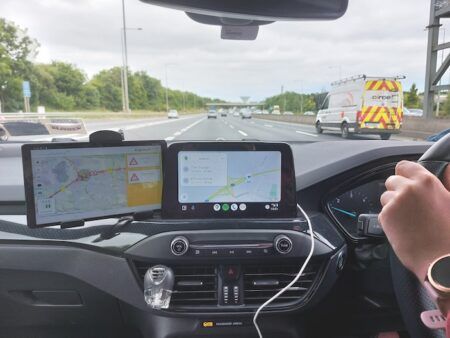German transportation software developer the PTV Group is highlighting how its simulation and traffic modelling technology is being used in the Spanish Cooperative Automotive Research Network (CARNET) project, which has implemented a cutting-edge simulation environment for the Barcelona Metropolitan Area.
The newly-established virtual mobility lab includes the offering of all the city’s public transport modes, as well as private vehicles, and the updated demand for mobility. The Virtual Mobility Lab, a strategic project within CARNET, was presented and demonstrated at the Smart City Expo World Congress 2017.
The aim was to show how it can analyze and assess the impact of smart mobility projects in Barcelona, and how the results can be extrapolated before the implementation of a pilot test. The new model will support those who make decisions on mobility policies, transport operators, and new companies that are developing mobility alternatives and wish to assess them.
The CARNET research and innovation ‘hub’ was founded by the Technical University of Catalonia (UPC), Volkswagen Research Group and SEAT. The PTV Group set up a subsidiary in Spain and joined CARNET as industrial partner in 2017. CARNET aims to solve the challenges of future urban mobility, and focuses on innovative technologies and new concepts.
In order to create new product solutions, CARNET wants to transform traditional concepts of the automotive product and technical development methods into cooperative approaches that bring together vehicle manufacturers, communities and potential service operators.
In one of the first tests, the Virtual Mobility Lab showed that the number of private vehicles on the streets of Barcelona could be reduced to 2,000 vehicles with the use of 500 on-demand shuttles, which would lead to a considerable improvement in traffic in the city and a reduction in pollution levels.
“The Virtual Mobility Lab is an ambitious project and a collaboration between the Faculty of Informatics of UPC, Volkswagen Research Group, Seat, PTV and Kineo Mobility Analytics,” explained Jaume Barceló (above right), emeritus professor and scientific director of the Technical University of Barcelona, and a strategic consultant at PTV.
“We supported the initiative with a PTV Visum multimodal model of the First Crown (municipal region) of the Metropolitan Area of Barcelona. And we used our PTV MaaS Modeller tool in the virtual laboratory to create several scenarios in the city, as well as in selected areas of the First Crown, and to demonstrate the potential impact of Demand Responsive Transport services on the city.”




